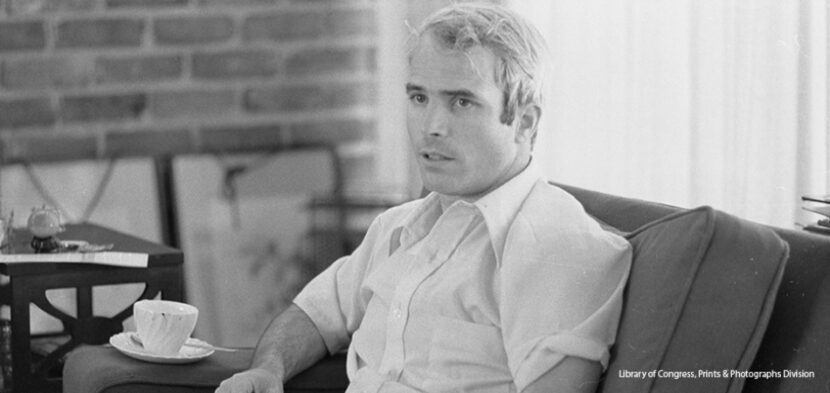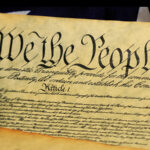
Saying Goodbye to Senator John McCain
When you hear the name John McCain, you might think of the man whose courage in battle Trump attacked during the 2016 presidential election. Or you may remember further back, to when John McCain ran against Barack Obama for president in 2008. But these episodes are only the tip of the iceberg of McCain’s life of service to his country. After a battle with brain cancer, he passed away last week in his home state of Arizona at the age of 81. Here, Election Central remembers the life of this military veteran, presidential hopeful, and influential senator.
A Life of Service
John Sidney McCain III was born in 1936. Both his father and grandfather were U.S. Navy admirals, and McCain went on to serve in the navy as a ground-attack pilot during the Vietnam War. His plane was shot down over Hanoi, and he was captured by the North Vietnamese. As a prisoner of war for many years, he faced solitary confinement and torture. He was released in 1973 and received the Silver Star, the Legion of Merit, and other prestigious awards. McCain retired from the navy in 1981.
But before his retirement, his life began to move in the direction of politics when he became the navy’s liaison to the U.S. Senate in 1977. He went on to represent Arizona in the U.S. House of Representatives from 1983 to 1987, then was elected to the U.S. Senate in 1987, where he served until his death. He also twice came close to becoming president: first, when he ran against George W. Bush in the 2000 Republican primary, and then again in 2008 when he battled Democratic candidate Barack Obama.
As a politician, McCain considered himself a conservative. Yet he often clashed with the more right-wing factions of his own party. He also gained a reputation for his direct, no-nonsense style, and for bipartisanship. For example, one of his greatest legislative achievements was the 2002 McCain-Feingold Bipartisan Campaign Reform Act, which tightened rules on campaign spending for candidates from both parties. And last year, he was the critical deciding vote that prevented the GOP’s attempted overhaul of the Affordable Care Act (“Obamacare”). Though he was traditionally conservative on issues such as abortion and gun regulation, he disagreed with his own party members on some immigration and health care legislative proposals and he also held his own views on regulating greenhouse gas emissions. This made McCain a member of Congress who was truly able to “cross the aisle” politically.
Saying Goodbye
McCain’s funeral was held on September 1 at the National Cathedral in Washington, D.C. His bipartisan reputation was illustrated by the fact that both former presidents George W. Bush (a Republican) and Barack Obama (a Democrat) gave moving eulogies in his honor. McCain’s daughter also gave an emotional speech remembering her father and criticizing the way the current administration has divided the country. Trump was notably not invited to attend the services.
McCain was buried in Annapolis, Maryland.


